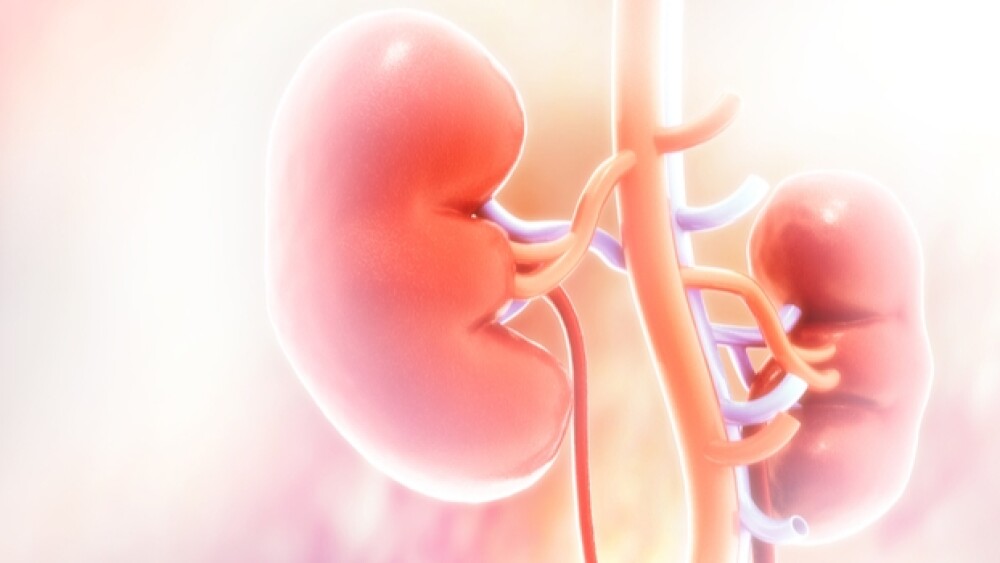Akebia Therapeutics announced topline results for PRO2TECT, the second of two Phase III cardiovascular outcomes programs. The trial was evaluating the company’s vadadustat for treatment of anemia caused by chronic kidney disease in adults not on dialysis.
Cambridge, Massachusetts-based Akebia Therapeutics announced topline results for PRO2TECT, the second of two Phase III cardiovascular outcomes programs. The trial was evaluating the company’s vadadustat for treatment of anemia caused by chronic kidney disease in adults not on dialysis.
The two PRO2TECT trials looked at the efficacy and safety of the drug compared to darbepoetin alfa (Amgen’s Aranesp) for the treatment of anemia due to chronic kidney diesase (CKD) in adults not on anemia. Akebia’s vadadustat program also has ongoing Phase III trials, INNO2VATE, for anemia caused by CKD in adults on dialysis. The company reported positive topline data for those programs in May.
In the two PRO2TECT studies, vadadustat hit the primary and key secondary efficacy endpoint, which was non-inferiority to darbepoetin alfa. This was measured by a mean change in hemoglobin (Hb) between baseline and the primary evaluation period, weeks 24 to 36 and the secondary evaluation period at weeks 40 to 52.
However, the drug did not meet the primary safety endpoint of the PRO2TECT program. This was defined as non-inferiority of vadadustat compared to darbepoetin alfa in how long to the first occurrence of major adverse cardiovascular events (MACE). MACE is the composite of all-cause mortality, non-fatal myocardial infarction, and non-fatal stroke.
At this time, the company plans to submit a New Drug Application (NDA) to the U.S. Food and Drug Administration (FDA) for vadadustat for anemia from CKD in adults both on dialysis and not on dialysis in early 2021. The company and its collaboration partner, Otsuka Pharmaceutical Co., are also working to prepare a Marketing Authorization Application (MAA) for the European Medicines Agency (EMA).
“The results of Akebia’s global Phase III program continue to underscore the potential of vadadustat as a once-daily oral standard of care for patients living with anemia due to CKD, upon approval,” said Steven K. Burke, senior vice president, Research & Development and chief medical officer of Akebia. “There is a significant unmet medical need among patients living with anemia due to CKD, and we are excited to be advancing vadadustat as a potential therapy for these patients. I would like to extend our sincere thanks to everyone involved in this study, including the patients, physicians, investigators and their staff.”
Despite the optimism, stockholders weren’t as happy, driving shares down 70% at the safety issue.
“While achieving the MACE endpoint would have made our path here more straightforward, as it is in dialysis, we still believe we have a path toward approval for vadadustat in non-dialysis,” said John Butler, the company’s chief executive officer.
The two PRO2TECT studies were Correction and Conversion. Together they enrolled 3,476 adults not on dialysis with anemia from CKD. Patients were randomized 1:1 to receive either vadadustat or darbepoetin alfa.
PRO2TECT Correction looked at 1,751 patients with anemia due to CKD without recent ESA (erythropoietin stimulating agents) use. PRO2TECT Conversion evaluated 1,725 patients with anemia due to CKD on an active ESA treatment.
Both studies had a primary efficacy endpoint of mean change in Hb between baseline and the primary evaluation period. MACE was independently and blindly assessed by the Brigham and Women’s Hospital’s Clinical Endpoint Center (BWH CEC) in Boston.





